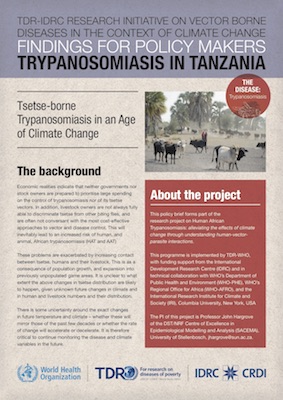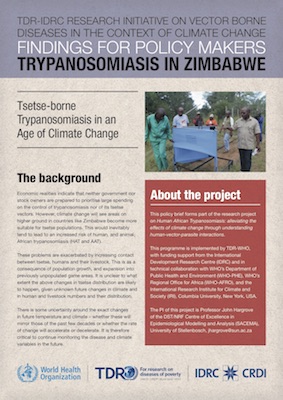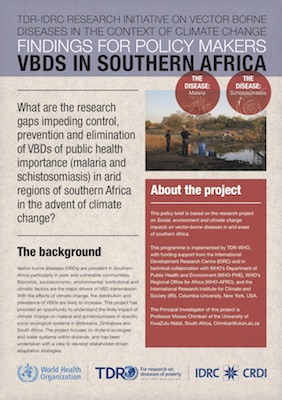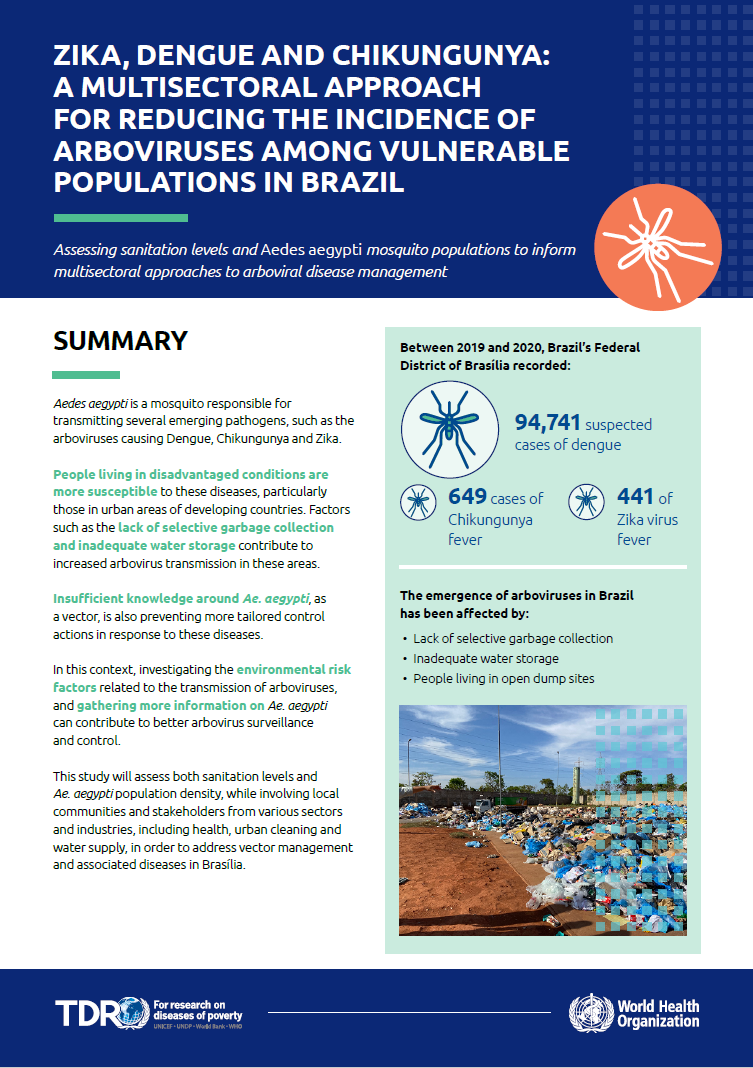Investigating the links between vector-borne diseases, people, ecology and the environment in selected settings
Select a programme
TDR and partner organisations are funding research programmes investigating malaria, schistosomiasis, rift valley fever, trypanosomiasis, dengue, chikungunya and zika virus around the world. Select a programme from the menu above or search the map below to find out more about the four programmes and the 13 different research projects within these programmes.
Background
Vectors that carry disease are profoundly affected by the climate and other environmental conditions. Human and vector behaviours also affect how often humans and vectors come into contact. In addition, some vectors have also shown resistance to insecticides, which presents a further threat. These programmes investigate conditions contributing to vector-borne diseases and share their results with affected communities and policy makers.
Novel methods
Find out about the novel methodological approaches being used to study vector-borne diseases in various locations. These include using GPS trackers to monitor the movements of local community members, drones to detect vector breeding sites and the use of fluorescent mosquitoes.
Community involvement
Involving communities is essential to the success of these studies. Communities are directly involved in collecting water and vector samples, creating maps to identify vector breeding sites, breeding guppies to eat mosquito larvae and volunteering to wear GPS trackers.
TDR/IDRC Research on Vector-Borne Diseases in Africa
Climate change is predicted to have a profound effect on the intensity and distribution of certain vector-borne diseases in Africa. The programme examined what was likely to happen where, and how to help communities adapt to changing climatic conditions.
Visit the programme homepageEarly warning systems for improved human health and resilience to climate sensitive vector-borne diseases in Kenya
This project aimed to assess the vulnerability of dryland human populations to vector-borne diseases and develop strategies and systems to improve their resilience to climate-sensitive vector-borne diseases in Baringo County, Kenya.
Predicting vulnerability and improving resilience of the Maasai communities to vector-borne infections: an ecohealth approach in the Maasai Steppe ecosystem
This project aimed to develop an ecohealth partnership on vector-borne disease control that encompasses local leadership, contemporary modeling and other approaches to enhance community resilience and to mitigate the impact of environmental change.
Social, environment and climate change impacts on vector-borne diseases in arid areas of southern Africa.
This project investigated the impacts of socio-economic, environmental, climatic, bionomic and institutional factors on malaria and schistosomiasis in specific vulnerable communities in arid areas of Botswana, South Africa and Zimbabwe.
Trypanosomiasis: alleviating the effects of climate change through understanding human-vector-parasite interactions
This project assessed the risks of trypanosomiasis infection for marginalised communities in Tanzania, to monitor trypanosomiasis in livestock in marginalised communities in Zimbabwe and to find ways of alleviating infection risks in both countries.
Vulnerability and resilience to malaria and schistomiasis in the northern and southern fringes of the Sahelian belt in the context of climate change
On this project, researchers studied the different factors that affect the transmission of malaria and schistosomiasis in order to develop appropriate strategies and tools for resilience and adaptation strategies.
Ongoing Malaria Transmission
Malaria persists in some areas around the world even where core malaria prevention measures have been implemented (LLINs and IRS). The programme examined the magnitude of this effect and what human- and vector-associated factors contribute to it in several settings.
Visit the programme homepageOngoing malaria transmission in Kenya, Cameroon and Ethiopia: Studies for sustainable malaria control and enhancement of elimination efforts
This project aimed to understand the contribution of entomological, ecological and anthropogenic factors in sustaining ongoing malaria transmission in Kenya, Cameroon and Ethiopia.
Ongoing malaria transmission in Papua New Guinea: Examining the role of humans, vectors and parasites as drivers of malaria
This project investigated the prevalence of ongoing malaria transmission and to determine how humans, vectors and their interactions influence human infection by malaria in two sites in Papua New Guinea.
Ongoing malaria transmission hotspots in Peru and Brazil: Setting the stage for testing improved interventions
This study investigated ongoing malaria transmission in two different hotspots in the Peruvia and Brazilian Amazon to strengthen strategic measures against malaria. The project evaluated current mosquito control measures, human behavioiurs influencing human-vector interactions and mosquito vector biology.
Ongoing malaria transmission in Tanzania and Burkina Faso
This project quantified and characterized existing ongoing Plasmodium transmission in communities where LLINs are already widely used, but where transmission persists.
Ongoing malaria transmission in the Greater Mekong Subregion: Studies to examine its magnitude and identify its causes
This study investigated the magnitude and causes of ongoing malaria transmission in two geographical areas of the GMS in Thailand and Viet Nam, across three ecological niches, namely villages, farms and forested areas.
Insecticide Resistance in West Africa
Some Anopheles mosquito species have developed resistance to insecticides in three West African countries – Mali, Benin and Nigeria. This programme investigated the effect of this on the efficacy of malaria vector control tools (LLINs and IRS) in these regions.
Insecticide Resistance in West Africa: Understanding the impact of insecticide resistance on the efficacy of IRS and LLIN in Mali, Benin and Nigeria
This two-year project assessed how well indoor residual spraying (IRS) and long-lasting insecticidal nets (LLINs) work in sites where Anophelese species have developed resistance to insecticides.
Vector Control in Southeast Asia
Certain vector-brone diseases including Chikungunya, dengue and Zika are rising public health challenges in Southeast Asia. This programme investigated ways to improve vector control by engaging and educating local communities and using innovative technologies such as the sterile insect technique.
Visit the programme homepageVector birth control in southeast Asia: Innovative solutions to prevent mosquito-transmitted diseases
This project aims to investigate using an innovative vector birth control tool to reduce populations of Aedes aegypti mosquitoes in Thailand. The long-term purpose will be to reduce levels of diseases carried by these mosquitoes, such as dengue, chikungunya and Zika.
Dengue vector control in Cambodia: Dengue vector control in schools and neighbouring household communities in Cambodia using larvivorous guppy fish
This project uses the Social Ecological Systems Resilience (SESR) framework to unuderstand how several epidemiological, ecological and socio-economic factors influence the transmission of dengue. The framework also guides the design of school-driven, community-based interventions for dengue surveillance and control that are viable in the context of people’s day-to-day life.
Multisectoral Approaches
The studies showcased on this page aim to expand the theoretical base of multisectoral approaches, to better understand the role of MSA in partnerships; and the contribution it can have on successful prevention and control of VBDs.
Visit the programme homepagePiloting a multisectoral intervention for controlling malaria vectors, mitigating insecticide resistance and assessing WASH facilities at health care units in West Africa
This programme will bring together partners from different sectors and communities, allowing the sharing of human, infrastructure and financial resources fro more efficient vector control.
Vector-borne diseases in vulnerable and hard-to-reach populations
Vulnerable and hard-to-reach populations are particularly at-risk of vector-borne diseases due to a range of social and environmental factors, including poverty and remote locations. This page showcases research into this issue and aims to inform evidence-based interventions to control and eliminate vector-borne diseases in these populations.
Evaluation of the impact and potential further development of the Malakit — a malaria self-diagnosis and treatment kit — in remote and hard-to-reach populations
National and regional efforts to eradicate malaria in the Guiana Shield (Suriname, Brazil and French Guiana) have led to a significant reduction in the disease in the last decade. However, some remote and hard-to-reach populations in the region remain susceptible to malaria.
How to use this map
Filter projects based on programme, country or disease, or type key words directly into the search bar. You can also click directly on one of the coloured circles to show projects active in a specific country. Click on the project title inside the coloured tabs to go to the project page.
Filter Projects By:
Programme
- {{ programme.title }}
Country
- {{ getname(country, 'country') }}
Disease
- {{ getname(disease, 'disease') }}



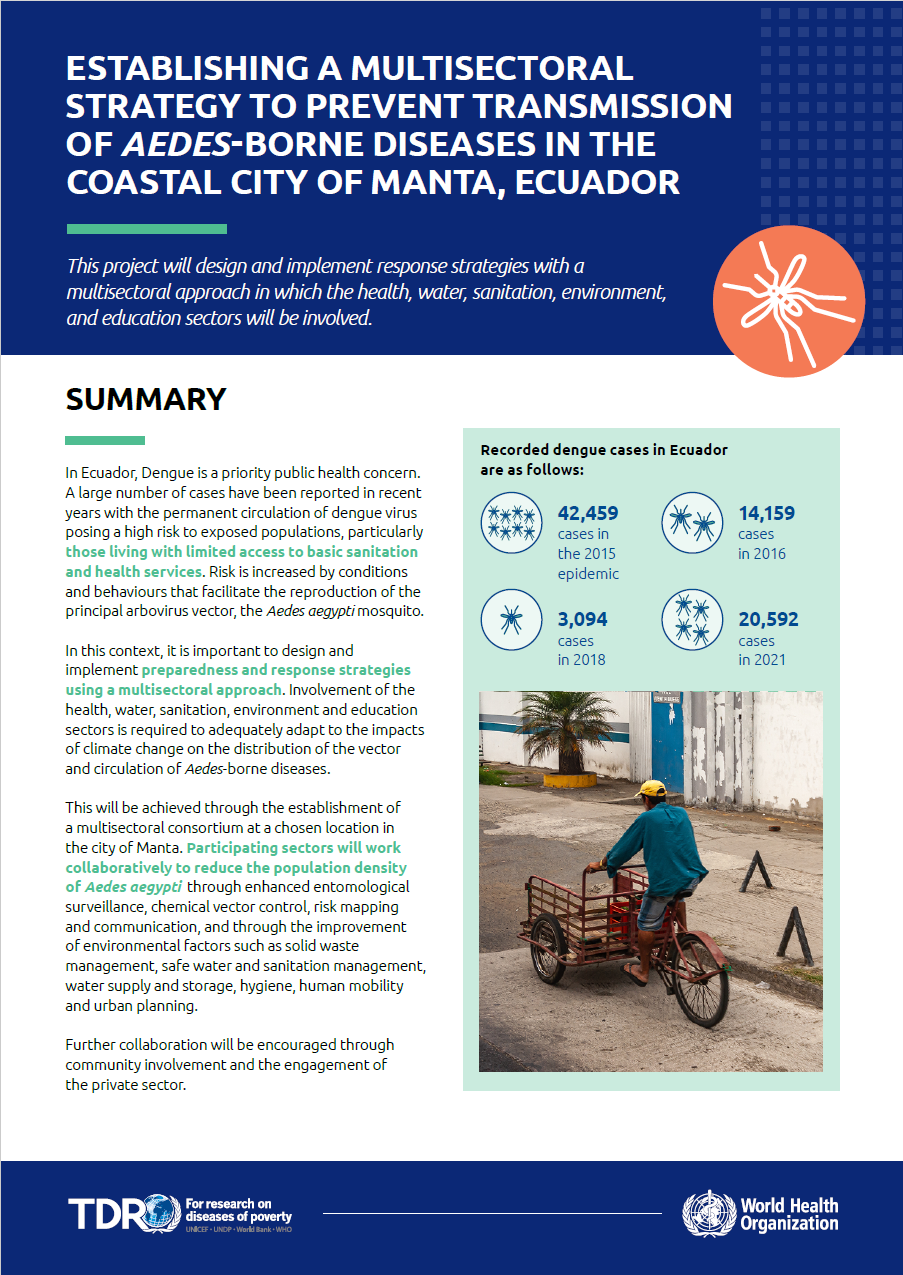
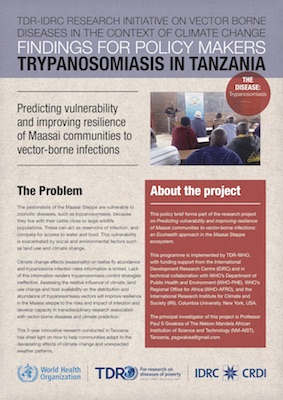
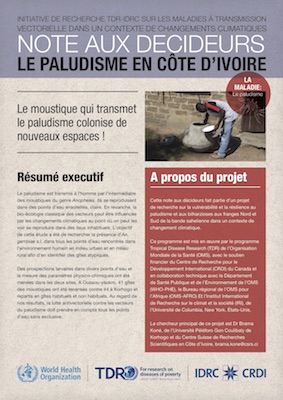
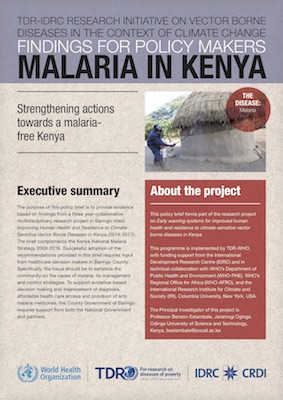
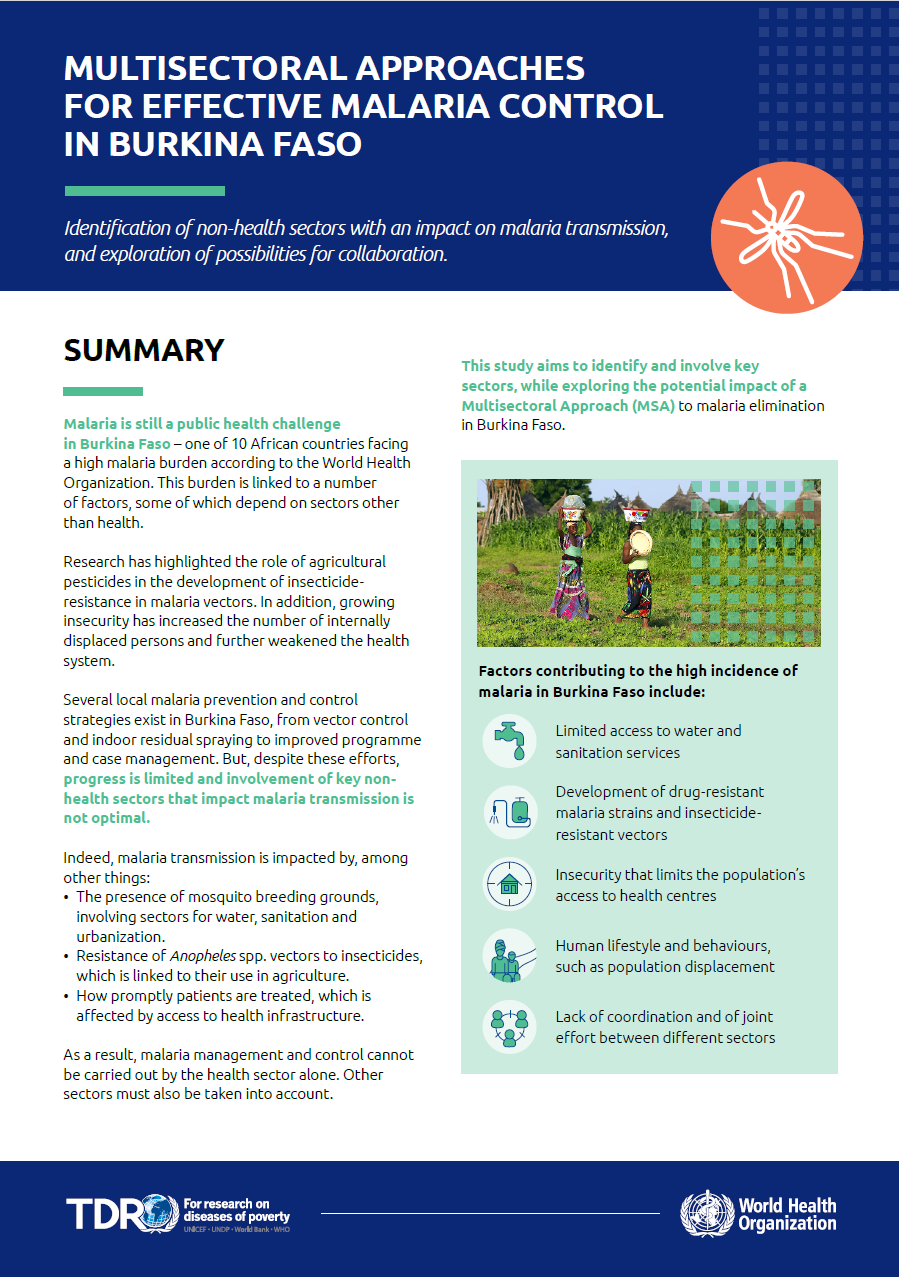
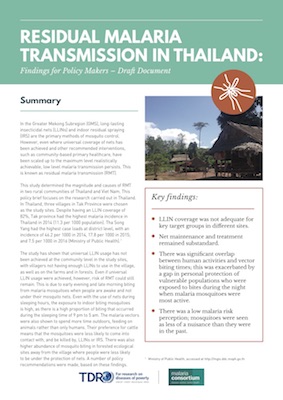
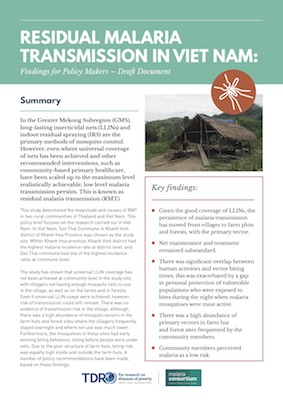
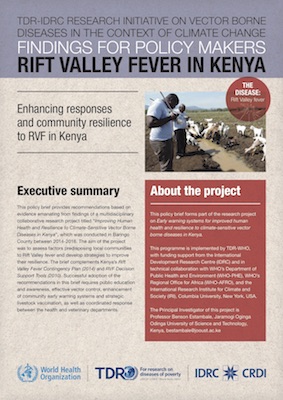
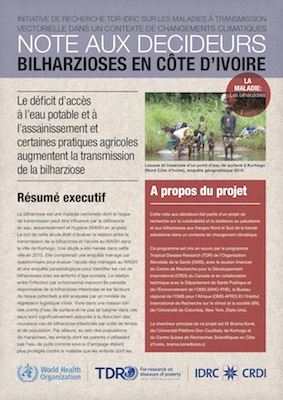
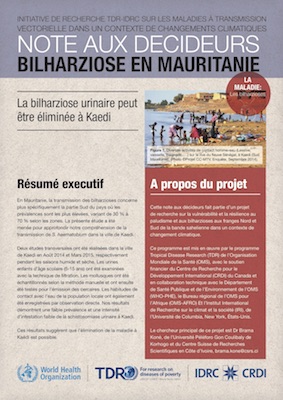
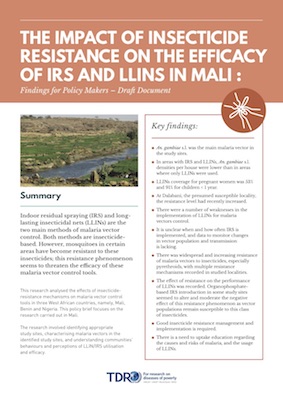
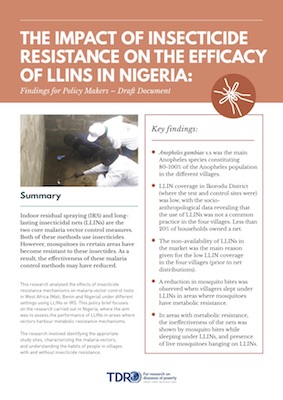
-1.jpg)
